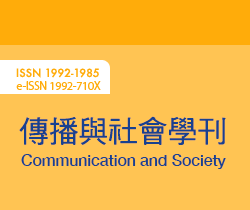 |
| July 2015 |
 |
33 |
|
| 專輯論文Special Issue Articles |
| 多媒介時代的新聞與倫理:台灣民眾新聞 使用、媒介信任與倫理觀的關聯研究 |
| Ethics in a Multimedia Age: An Examination of News Exposure, Media Trust, and Personal Ethics in Taiwan |
|
|
|
 |
 (6088)
(6088)
|
| 作者 |
徐孟延、蘇蘅 |
| Author |
Meng-Yen HSU and Herng SU |
| 關鍵詞 |
媒介倫理、多媒介環境、倫理、普世主義、相對主義、調查 |
| Keywords |
media ethics, multimedia environment, ethics, idealism, relativism, survey |
| 摘要 |
本文檢視多媒介環境下民眾的新聞倫理觀是否受到新媒介進入的影響而有不同,並探索哪些因素與民眾對新聞媒介的內容與記者採訪方式的倫理評斷有關,本研究試圖從民眾的新聞使用、媒介信任以及個人倫理觀等重要因素進一步觀察其間的關聯。研究發現,民眾對媒介內容的倫理評判,受其個人倫理觀影響甚鉅,較不會受到媒介暴露程度或信任程度左右。然而民眾對新聞採訪方式的倫理觀則較分歧,網路媒介的使用愈多者,對於新科技再現新聞事件的方式較具開放性;而電視新聞信任程度愈高者,則會傾向支持媒介組織的各種行事手段,無論在隱私、新聞置入或新聞再現方式皆對媒體較無批判力。整體研究結果顯示,多媒介環境下,現今新聞與媒介倫理觀是多元而複雜的,突破過往主要訴求新聞工作者專業倫理的意涵,而是一種專業倫理與民眾個人倫理交融的開放式媒介倫理觀。 |
| Abstract |
Media ethics is a subdivision of applied ethics. It deals with ethical principles and standards that are specific to the media. In a multimedia environment, the changing media landscape enables communication technologies to engage in discussions of media ethics. Based on the theoretical concepts of ethical relativism and ethical universalism, the study aims to examine the extent to which news exposure and media trust are predictors of ethical perceptions. The research is also designed to explore five research questions: 1) What is the public understanding of media ethics? 2) How does new media exposure relate to perceptions of media ethics? 3) What factors influence attitudes towards ethical media content? 4) What factors influence attitudes toward contentious information gathering methods? 5) How do different ethical perspectives guide ethical decision making. A multi-stage systematic sampling technique was used to perform computer-assisted telephone interviews with 1,025 Taiwanese adults aged 20 and above in September 2010. The responses indicated that remaining neutral and objective were the two most important professional moral values among the related issues. When the participants were asked to rate the news sources they trusted the most, more than 50 percent chose the television news over other news sources. Most responses indicated that newspapers were the second most trusted source of news. The results showed no significant relation between the respondents' attitudes toward the ethics of media content, media exposure, and media trust. The heavy use of online news use was positively related to media trust and willingness to accept questionable information-gathering methods. To conclude, the article discusses how media developments encourage the transition from traditional journalism ethics to "new media ethics," in which ethics is the concern of all citizens. The limitations of the study are discussed, and recommendations for future studies on media ethics are provided.
本文引用格式
徐孟延、蘇蘅(2015)。〈多媒介時代的新聞與倫理:台灣民眾新聞使用、媒介信任與倫理觀的關聯研究〉。《傳播與社會學刊》,第33 期,頁225–254。
Citation of this article:
Hsu, M.-Y., & Su, H. (2015). Ethics in a multimedia age: An examination of news exposure, media trust, and personal ethics in Taiwan. Communication & Society, 33, 225–254.
|
|
|
 |
| No.74 2025 October |
 |
| No.73 2025 July |
 |
| No.72 2025 April |
 |
| No.71 2025 January |
 |
| No.70 2024 October |
|
